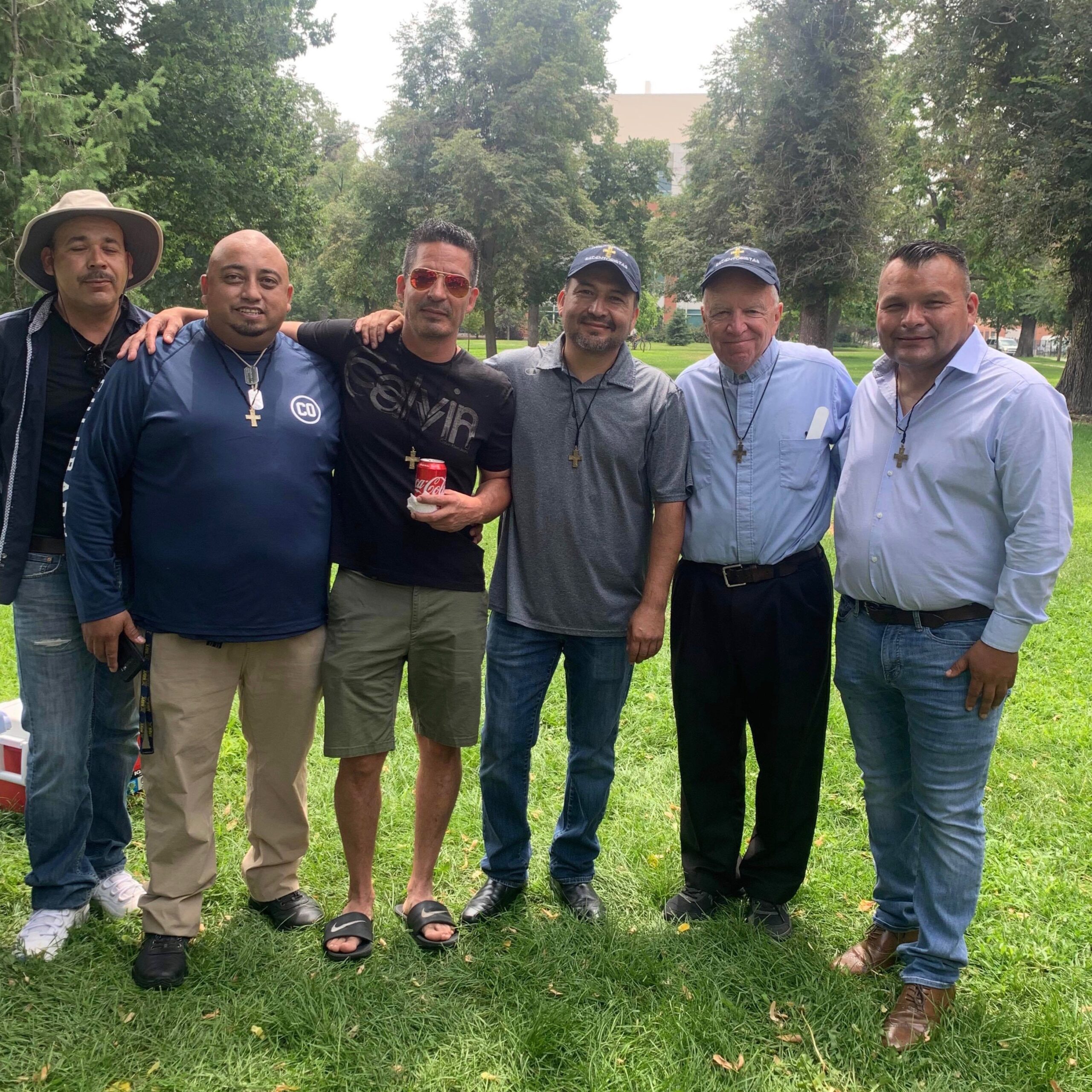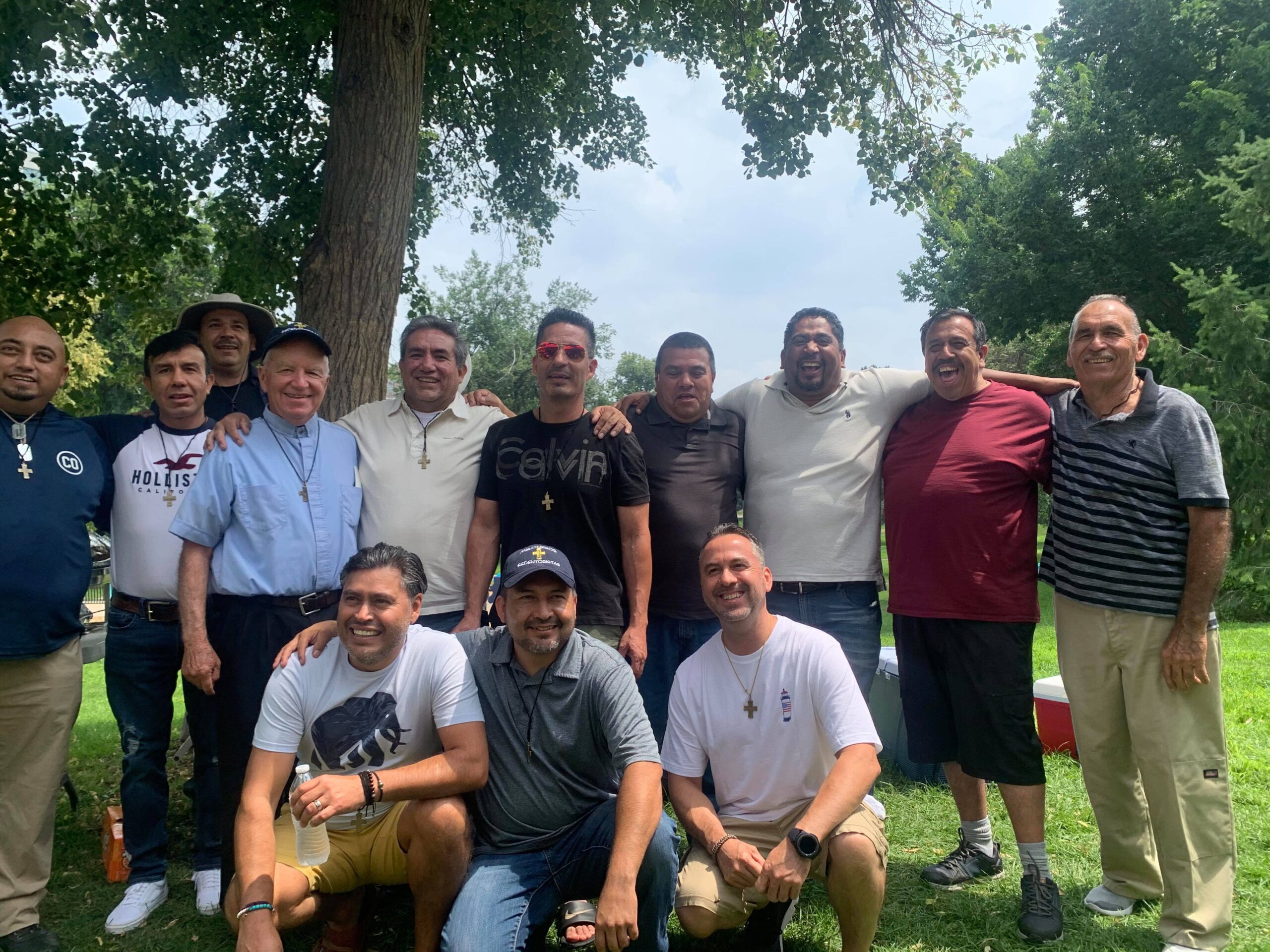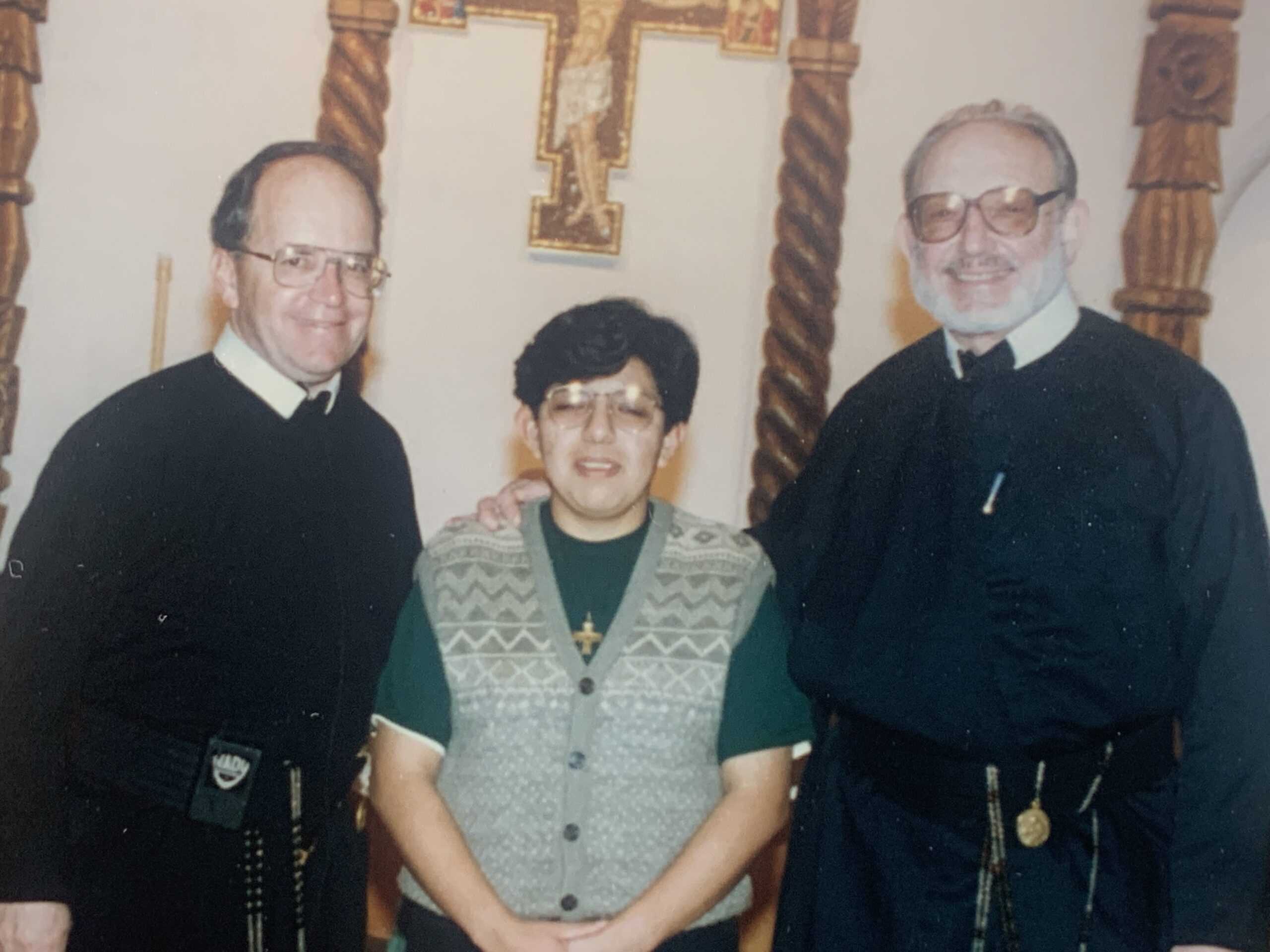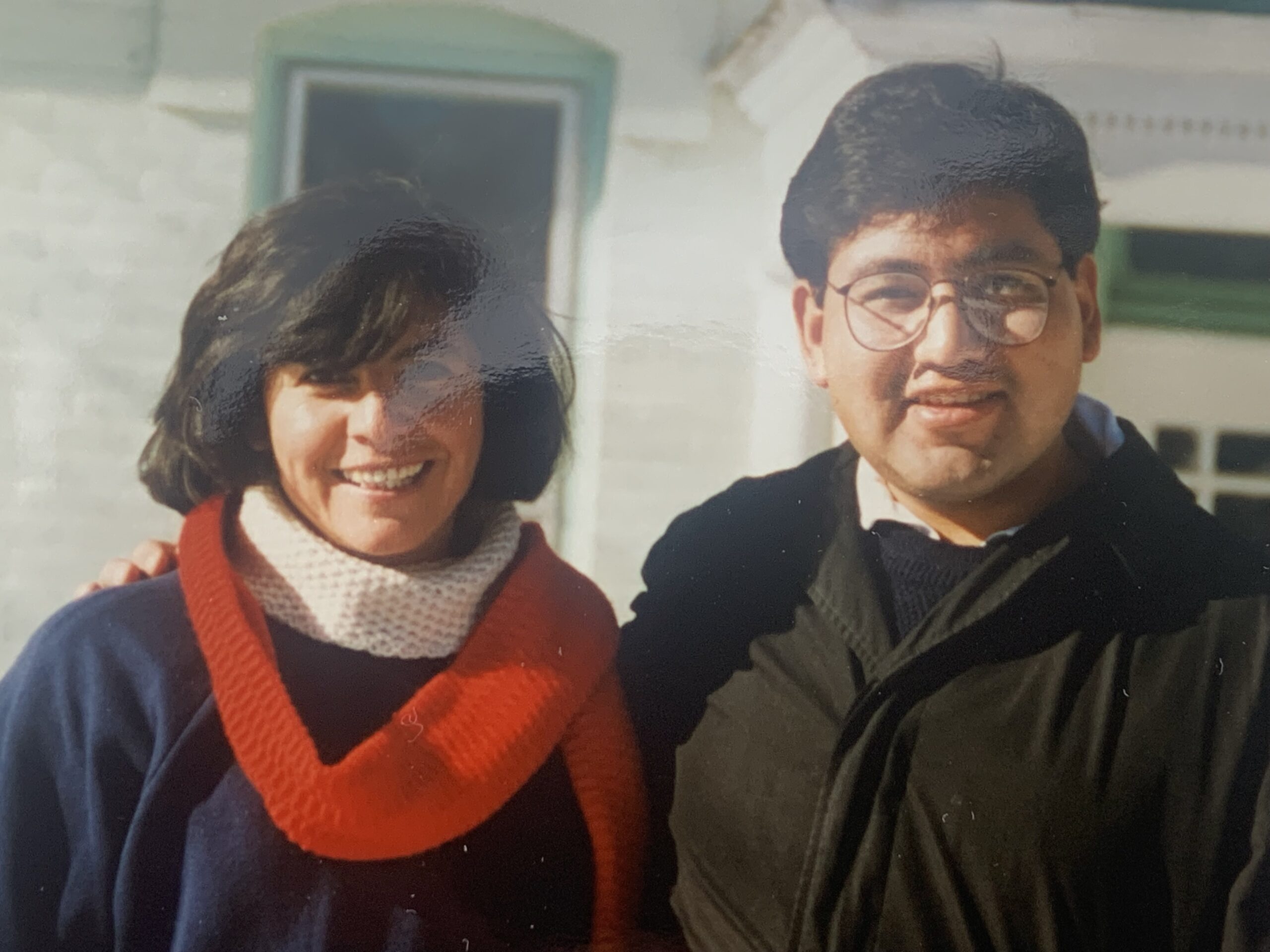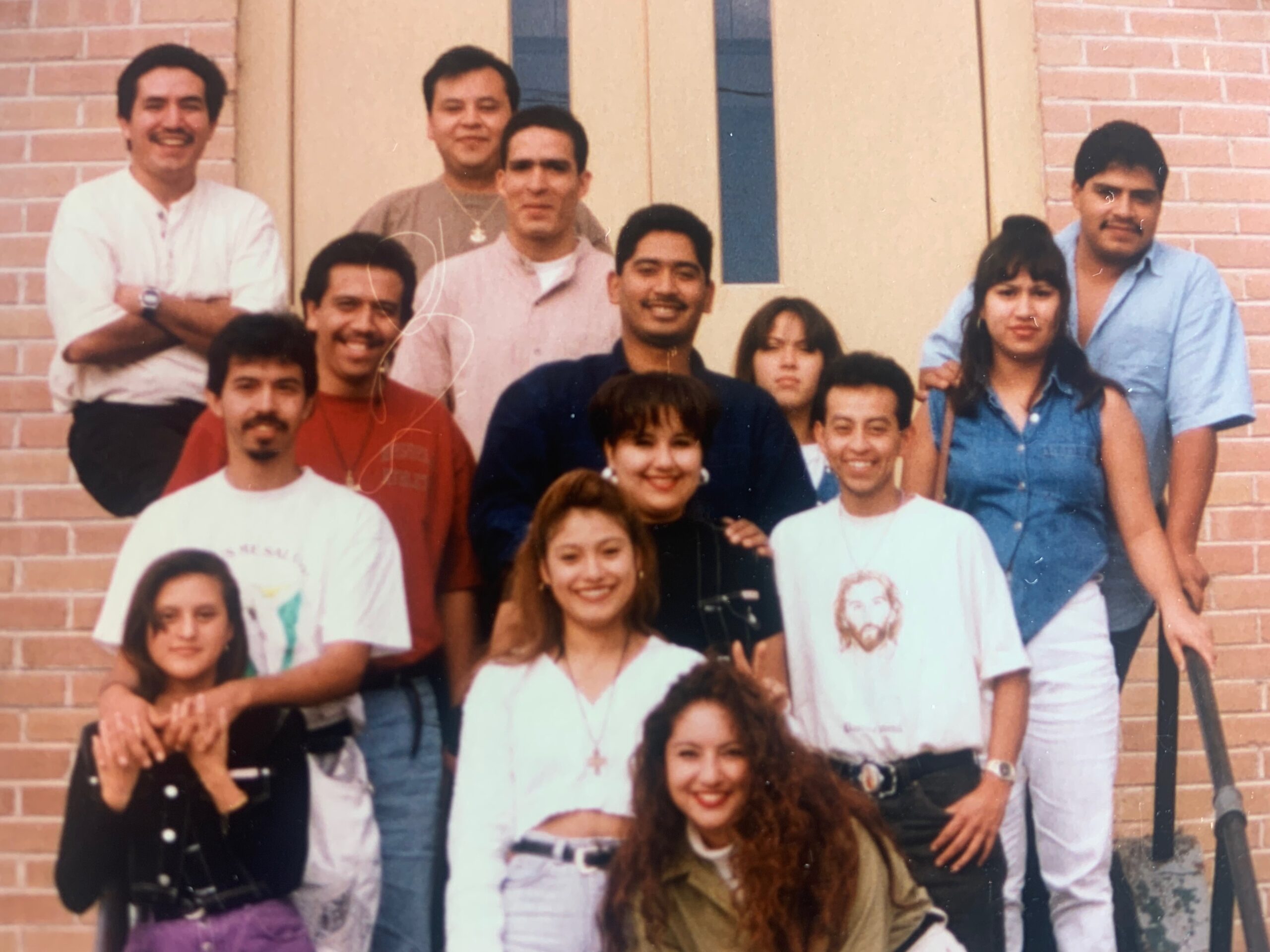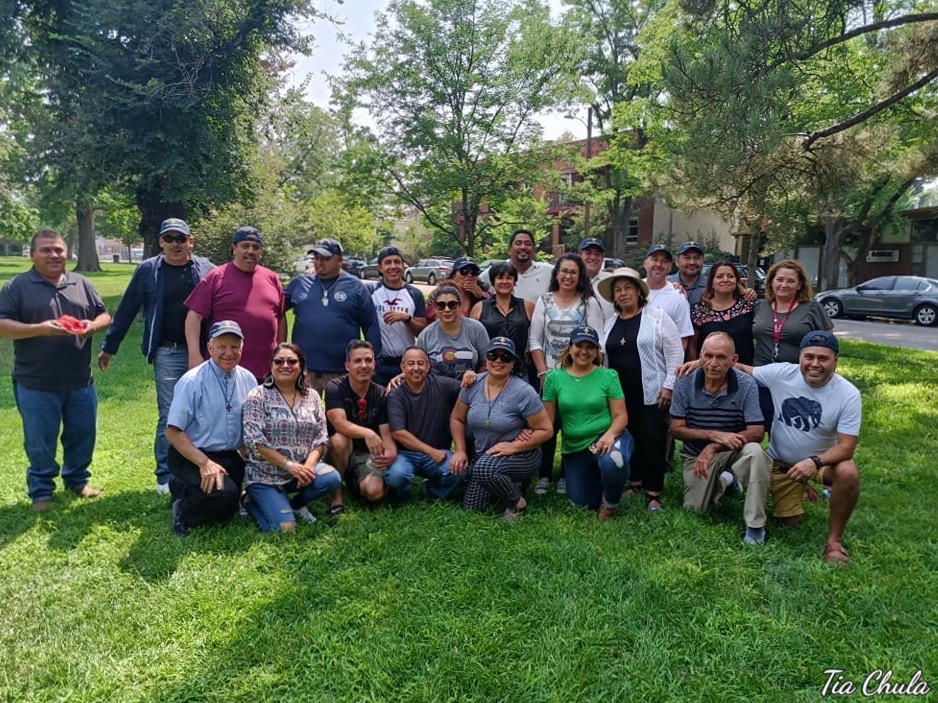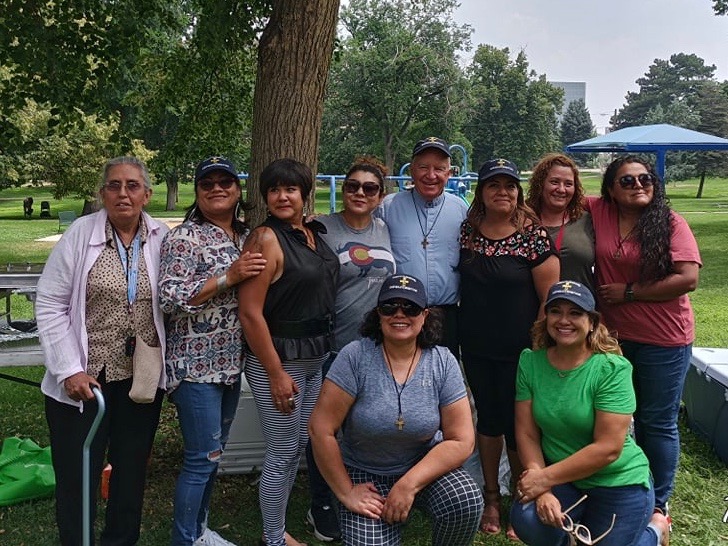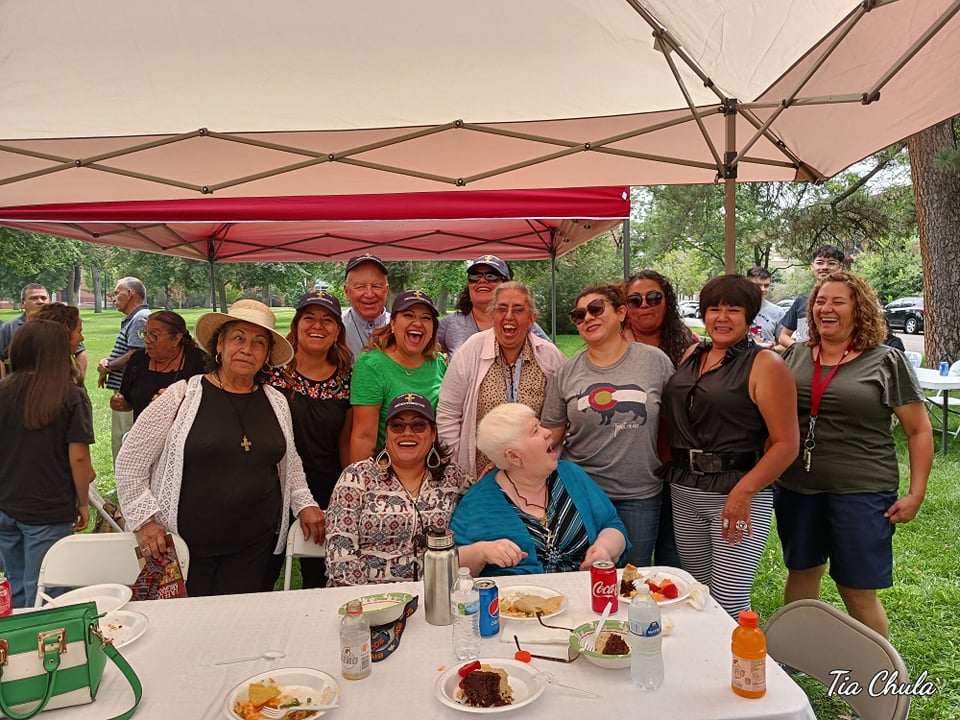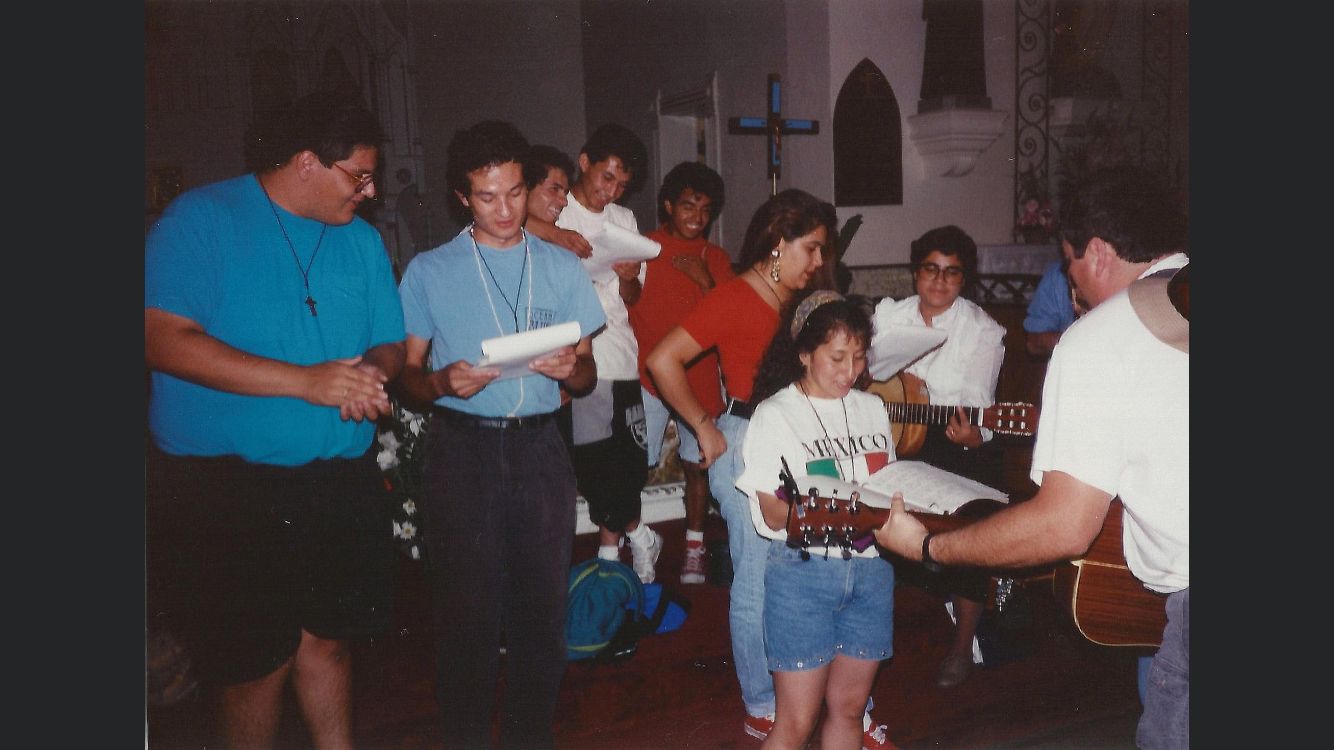How can I help? – ¿Cómo puedo ayudar?
¿Cómo puedo ayudar?
He oído: “¿Cómo puedo ayudar?” A menudo es difícil responder. En lugar de darles maneras de ayudar a los migrantes y a los inmigrantes, al final solo pueden ofrecer dinero para ayudar a los misioneros en su trabajo. Podemos hacer más, pero se necesita imaginación, compasión y humildad. Cuando la misión está en una tierra lejana, o en lugares que no podemos entrar, es difícil imaginar cómo se puede ayudar. Durante este tiempo de pandemia, estamos aprendiendo diferentes formas de orar, estudiar e interactuar. Necesitamos acceso para entrar las luchas de los pobres.
Enrique López solía decir: “Si no caminas con mi gente, no te molestes”. En Casa San Alfonso, descubrimos que ayudar a los jóvenes de los barrios marginales no era lo que hicimos. Lo importante era el respeto que experimentaron cuando comimos con ellos, reímos, lloramos, escuchamos y les damos la bienvenida como miembros iguales en nuestra familia Casa. Ya he contado la historia de Noé antes, pero encaja aquí.
En el tercer día viviendo en Casa San Alfonso, estaba cocinando y necesitaba algunas cosas de la tienda. Le pedí a Noé que fuera a la tienda y me dijo que no tenía dinero. Le di 40 dólares y le dije que se fuera. Dijo que era mucho para llevar, necesitaba un coche. Le tiré mis llaves y le dije que se fuera. Dijo que en ese momento consideraba nuestro hogar, su hogar. Se sintió responsable de su hogar. Lo ayudamos a crecer en responsabilidad y respeto por sí mismo.
Rompe las cadenas de la falta de respeto
Vivimos en un ambiente que no respeta las luchas de los pobres. Muchos se enfocan en los síntomas de la pobreza; la violencia, la desesperación, las adicciones y las tragedias de la juventud en nuestros barrios, pero no reconocen que las personas de estas comunidades marginadas son nuestros hermanos y hermanas. El éxito de Casa San Alfonso fue brindarles a los jóvenes un lugar seguro. No fueron los sacerdotes o hermanos quienes mantuvieron las malas influencias fuera de nuestra familia Casa, fueron los mismos jóvenes. Reconocieron el bien el uno del otro.
Entra en las luchas del migrante
¿Como ayudar? Cambie su forma de ver las luchas de los pobres. Imagínese en sus zapatos. Deja de escuchar las voces enojadas que nos rodean que culpan a los pobres por sus luchas. Considera la experiencia de gente en países con gobiernos y sistemas sociales que no funcionen. Le pregunté a un migrante de 14 años que acababa de llegar a los Estados Unidos: “¿Qué hay de tan horrible en tu ciudad natal que pusiste tu vida en peligro al cruzar los desiertos de Arizona?” Dijo: “Después de que asesinaron a mi padre y a mi hermano, tuve que irme”. No podemos imaginarnos viviendo en tal peligro, pero podemos validar su respuesta y desafiar la respuesta de nuestro gobierno a esas personas.
No tengo respuestas a las preocupaciones de inmigración de nuestra nación, pero espero que podamos alejarnos de la retórica, la política y la ira, para buscar soluciones que puedan responder mejor a las buenas personas al margen de la sociedad. Para ayudar, podemos comenzar caminando con los pobres y dejándolos caminar con nosotros. En cuanto a Casa San Alfonso, treinta años después pudimos celebrar algunas historias sorprendentes de logros para quienes caminaron en una comunidad acogedora.
How can I help?
A number of people ask, “How can I help?” Often it is difficult to respond. Instead of giving people ways to help migrants and immigrants, they end up only able to offer money to help missionaries in their work. There is more that people can do, but it takes imagination, compassion and humility. When the mission is in a distant land, or in places we may not or cannot enter, it is difficult to imagine how one may help. During this time of a pandemic, we are learning different ways to pray, study and interact. We need to become aware of ways to enter the struggles of the poor.
Fr. Enrique Lopez often said, “If you don’t walk with my people, don’t bother.” At Casa San Alfonso, we discovered that helping inner-city youth was not what we did to help the youth. It was the respect that they experienced as we ate with them, laughed, grieved, listened and welcome them as equal members in our Casa family. I have told the story of Noe before, but it fits here.
On the third day living at Casa San Alfonso, I was cooking and needed some things from the store. I asked Noe to go to the store, and he said that he had no money. I gave him $40 and told him to go. He said that it was a lot to carry, he needed a car. I threw him my keys and told him to go. He said that at that moment he considered our home, his home. He felt responsible for his home. Looking back, it helped him grow in responsibility and self-respect.
Break the chains of disrespect
We live in an environment that disrespects the struggles of the poor. Many focus on the symptoms of poverty, violence, desperation, addictions and the tragedies of youth in our barrios, but fail to recognize that the people of these marginalized communities are our brothers and sisters. The success of Casa San Alfonso was in giving the young people a safe place. It was not the priests or brother who kept the bad influences out of our Casa family, it was the young people themselves. They recognized the good in each other.
Enter the struggles of the migrant
How to help? Change your way of viewing the struggles of the poor. Imagine yourself in their shoes. Stop listening to the angry voices around us that blame the poor for their struggles. Consider that you have not endured some of the pressures of people in countries with failed governments and social systems. I asked a 14-year-old migrant who had just arrived in the United States, “What is so horrible in your hometown that you put your life in danger crossing the deserts of Arizona?” He said, “After they murdered my father and my brother, I had to leave.” We cannot imagine living in such danger, but we can validate his response and challenge our government’s response to such people.
I do not have answers to the immigration concerns of our nation, but I hope that we can step away from rhetoric, politics and anger, to seek solutions that can better respond to good people on the margins of our society. In order to help, we can start by walking with the poor and letting them walk with us. As for Casa San Alfonso, thirty years later we could celebrate some surprising stories of accomplishment for those who walked in a welcoming community.
Si quiere recibir este blog diario, abajo del poste inscribe donde dice: “Sign up to Receive Padre Migrante Email.”
If you wish to receive the daily blog, at the bottom of the blog, inscribe with button that says: “Sign up to Receive Padre Migrante Email.”
Oh Jesús, tú nos llamas: “Síganme”. Bendice, Señor, a todos los que acogen tu llamado. Puede que el camino no sea fácil, pero tenemos la confianza de que todo es posible si caminamos contigo. Que este viaje nos abra los ojos a las maravillas de tu amor por nosotros. Oramos por toda tu gente, por todos los creyentes e incrédulos, por los líderes y seguidores. Oramos por la sanación, el perdón, la compasión, la justicia y la paz. Oramos para que, al seguirte, nosotros también podamos ser pescadores de hombres. Bendícenos en nuestro viaje.
O Jesus, you call us, “Come after me.” Bless, O Lord, all who welcome your call. The path may not be easy, but we have confidence that all things are possible if we walk with you. May this journey, open our eyes to the wonders of your love for us. We pray for all your people, for all believers and unbelievers, for leaders and followers. We pray for healing, for forgiveness, for compassion, for justice, for peace. We pray that as we follow you, we too can be fishers of men. Bless us on our journey.
